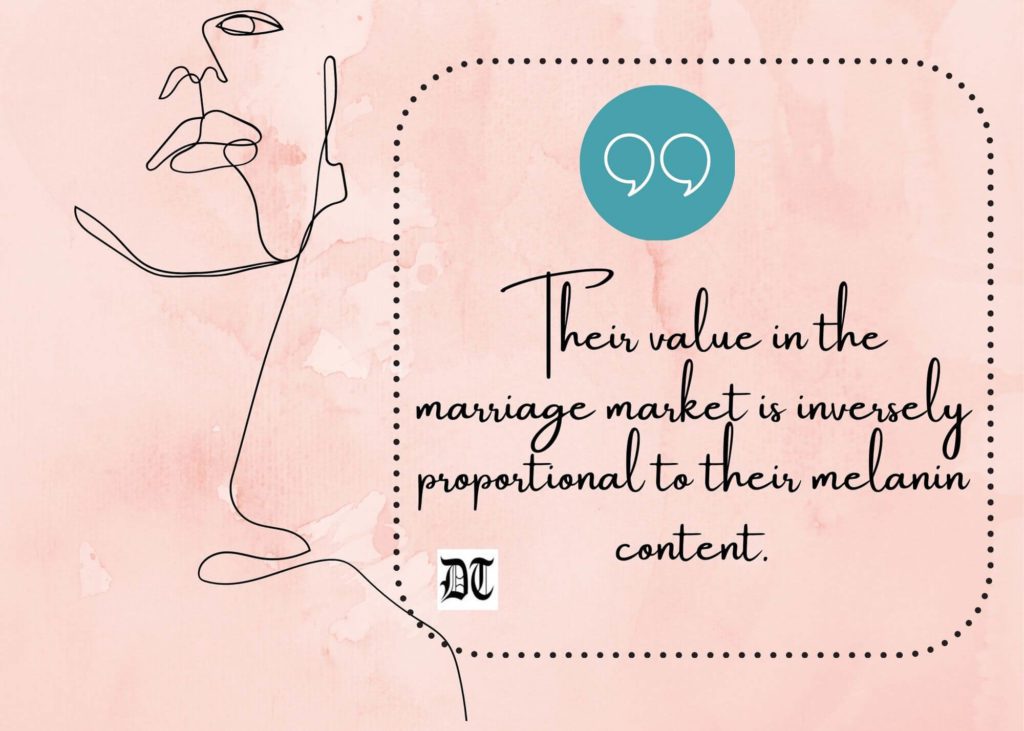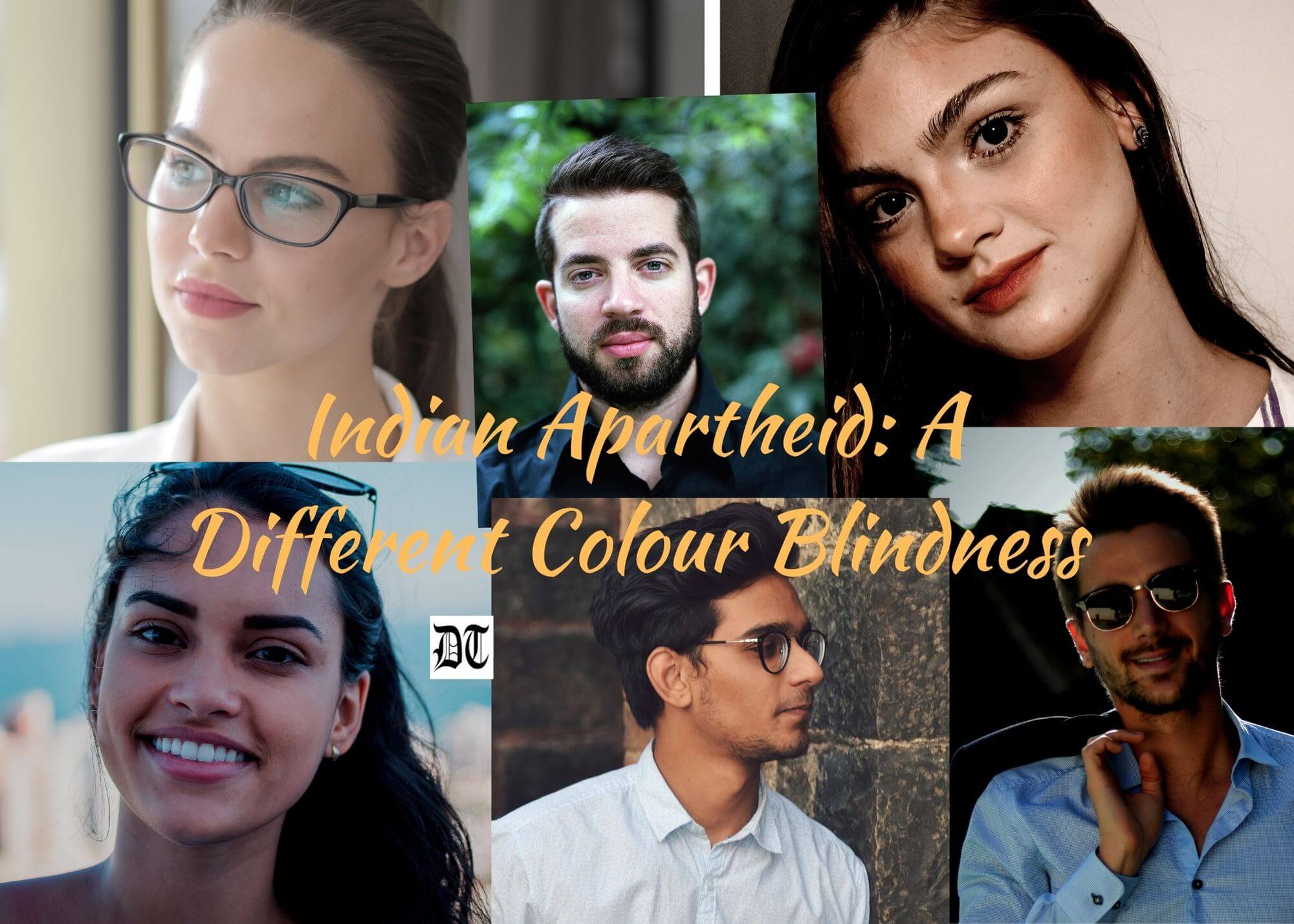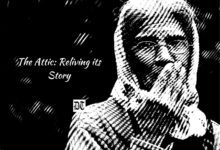Soumya rues about the prevalent Indian Apartheid, discriminating people based on skin colour. An analysis for Different Truths.
In our childhood we read the school stories of Billy Bunter, where the Indian child was called Inky, in reference to his skin colour.
In America, people of mixed races were called, having a drop of ink in their blood.
For long, ink has been the slang for dark skin.
For long, ink has been the slang for dark skin.
And we aren’t free of this prejudice either.
In India, apartheid reigns long after it has been dismantled in South Africa. No, I am not talking about everybody’s favourite bugbear, the caste system. I am talking about colour.
Light Skin
In our country, the lighter the skin, the higher you are held in society’s esteem. Being melanin deficit is a virtue. A healthy proportion of melanin in our skin might save us from the ill effects of the harsh tropical sun but it leads to social down gradation.
Their value in the marriage market is inversely proportional to their melanin content.
This is especially true for women. Their value in the marriage market is inversely proportional to their melanin content. Therefore, grand moms advised their wards not to stay out in the sun as a healthy tan would hike up the dowry. Thus, too, the phenomenal sale of Fair & Lovely.
Even men fall prey to this bias and a separate product called Fair & Handsome is a bestseller in India, putting paid to the aphorism – Tall, Dark & Handsome.

Skin colour is also seen as an indicator of caste and class.
Skin colour is also seen as an indicator of caste and class. It is presumed that the upper-class people who stay away from the sun and do not indulge in manual labour have lightest skin and have a greater proportion of Aryan blood in them. The working classes who spend time in the open in manual labour have darker skin and are considered the backward castes as they are presumed to have a larger proportion of genes from the indigenous people of India.
Kuleen Brahmins
I am far from melanin deficient although I belong to the hallowed caste of Kuleen Brahmins, whose forefathers have been scholars studying books over millennia and none of whom would have toiled in the fields. I had a respectable white-collar job. Therefore, my clothes and bearings identify me as a member of the privileged classes, while my pigmentation alone would immediately mark me as the member of the toiling multitudes called by the privileged folks as the servant class.
In addition, my poor eyesight, corrected by a pair of specs mark me out as the book reading effete class…
In addition, my poor eyesight, corrected by a pair of specs mark me out as the book reading effete class, even if I tend to dress down. But the one place where I wear neither the specs nor much covering except for what I was born in is the swimming pool.
Confused Apologies
It is in the pool, therefore, that young mothers keep urging me to keep a look out for their youngsters identifying me as the coach or lifeguard purely based on my pigmentation. I often politely obliged but when I left the pool, some of them objected to my dereliction of duty. On being told that this was not part of my duties, and I was merely helping as I can’t say no to ladies, I received confused apologies.
… I have noticed this distinct prejudice against tanned skin.
Even being a member of the privileged male gender and having studied in elite institutions and working in the corporate world, I have noticed this distinct prejudice against tanned skin. I can realise how much worse it would be for women especially those not from upper class urban families.
Dark-skinned Gods
Despite having several dark-skinned Gods and Goddesses and heroes and heroines in mythology and epic literature, these attitudes have not changed much over time. The plight of dark-skinned girls has been poignantly brought to light in literature in many Indian languages. But the prejudice is deep rooted.
But we cannot deny the uncomfortable truth that apartheid based on skin colour is alive.
Whether it is a colonial hangover or some ancient prejudice, which is global, I cannot say. But we cannot deny the uncomfortable truth that apartheid based on skin colour is alive. And thriving in India.
Visuals by Different Truths






 By
By
 By
By